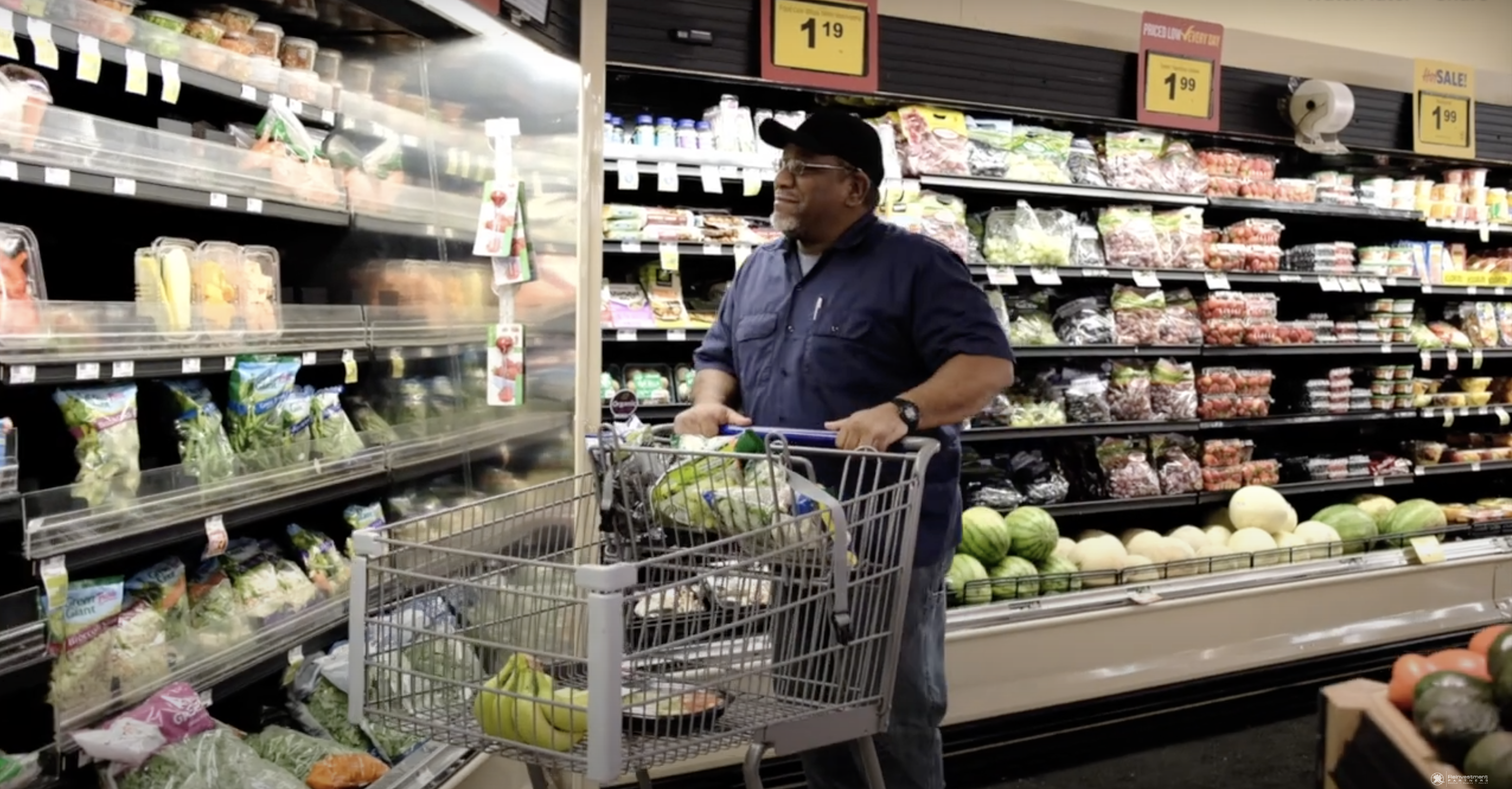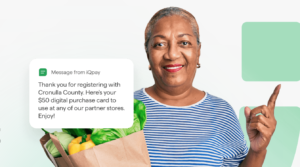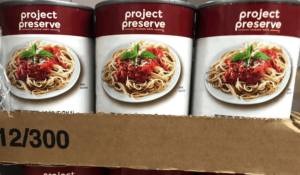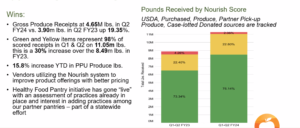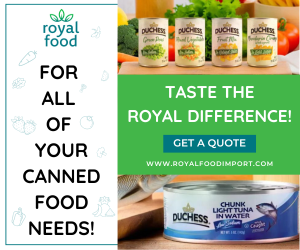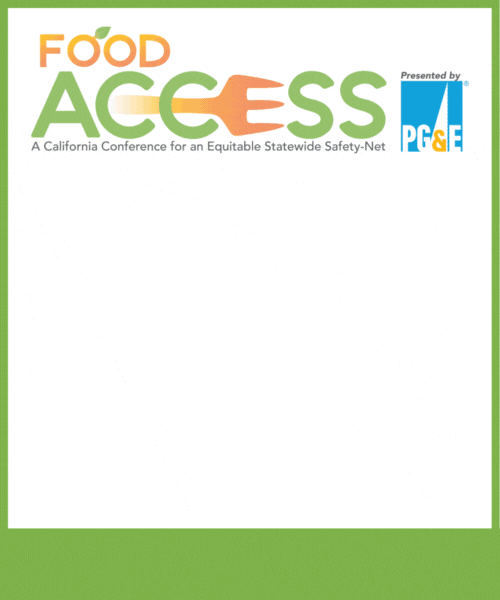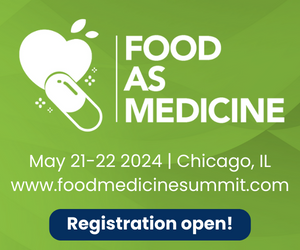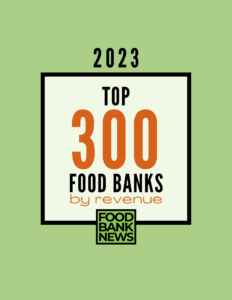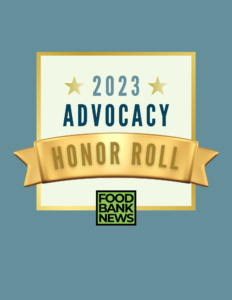Like many nonprofits, Reinvestment Partners of Durham, N.C., relied on grant funding when it started Eat Well, a produce prescription program that began by getting money into the hands of veterans so they could purchase fresh produce.
Before long, the produce prescription program was supported through a multi-million dollar contract with health insurer Blue Cross Blue Shield, as well as a mix of other grants and contracts, providing Eat Well with a more consistent stream of funding. Eat Well is now believed to be the nation’s largest produce prescription program, with more than 100,000 people served and $18 million spent so far on fruits and vegetables at local grocery stores. Almost all the participants make their first contact with the hunger relief effort through the healthcare system.
“We use food as medicine as a tool to address poverty,” said Sam Hoeffler, Food Programs Director at Reinvestment Partners. “We’re using the healthcare sector’s interest in food right now to our advantage to try to get as much food – or money for food – to people as possible.”
Eat Well’s growth is instructive for other nonprofits like food banks that run produce prescription programs or other Food as Medicine programs, and want to expand their reach and impact. For-profit companies are also using funding from health insurers to provide healthy food to vulnerable populations.

Eat Well’s initial grant, from the USDA, served as a proof of concept. Participants referred through a local federally qualified health clinic got a $40 produce credit at Food Lion, North Carolina’s largest grocery store chain, which was automatically applied when they used their loyalty number at any location.
Soon, Eat Well was working with 40 clinics in 40 counties in North Carolina, and poised to expand when Covid funding became available. With Cares Act funding, the goal became to prove the program’s scalability. Eventually, Eat Well expanded into all of North Carolina’s 100 counties.
A more recent stream of funding comes from North Carolina’s 1115 Medicaid waiver, which allows $650 million of the state’s Medicaid funding to go to non-medical programs addressing social determinants of health, such as food insecurity, through partnerships with the private insurers managing North Carolina’s Medicaid. Funding from the contract with Blue Cross Blue Shield has been a test of Eat Well’s ability to integrate with the healthcare system.
As the program scaled statewide, Hoeffler said Eat Well switched from grocery-store loyalty cards to sending out debit cards that could be used at any grocery store nationwide and were automatically reloaded every month. The debit cards tap into WIC’s produce identification system, so any fresh, frozen or canned produce that doesn’t have added salt, sugar or fat is automatically identified and covered when the card is swiped.
Eat Well has experimented with providing healthy meals and monthly produce boxes, in addition to the debit card. Each option serves a different purpose, Hoeffler said. “If you can cook and you can shop, a produce prescription [the debit card] is your best bet,” she said. “It gives you all the choices. If you can cook, but you can’t shop for whatever reason, a box is a really good fit. And if you can’t cook or shop, of course, a meal is probably your best bet.”
The Eat Well team is in the early stages of planning an expansion into other states, and Hoeffler hopes to see a suite of options available to participants across the country. “We would like to see people have access to exactly what they need … The produce prescription feels like it is the most aligned with facilitating people buying what they want, when they want.”
The flexibility and ease of use of the program has caused it to rank highly in terms of customer satisfaction. The Eat Well program has a Net Promoter score of 94, which means that 94% of participants would highly recommend it to their friends and family. For health care plans seeking to engage members in healthier lifestyles, the ability to offer such a highly ranked program is a big draw, and well worth paying for. Eat Well’s approach mirrors that of private-sector produce box companies, such as FarmboxRx, which pitch themselves to healthcare partners as patient engagement tools (see our profile of FarmboxRx here). Ultimately, the hope is that healthier lifestyles lead to better health outcomes and lower healthcare costs.
Recently, Eat Well came up with a way to further improve access to healthy food using an “affirmative enrollment” process as part of North Carolina’s 1115 waiver. It partnered with Healthy Blue, the Medicaid managed care program of Blue Cross Blue Shield North Carolina, to find people who would be automatically eligible for the Eat Well produce prescription card. The effort aims to get participants using Eat Well without them having to do any work to get started.
Healthy Blue already had information indicating whether a patient was eligible for the program. It then informed those potential participants about the program via text, requiring them only to submit their name, date of birth, and address to sign up. About 3,500 people enrolled in the program. Two weeks later, they were mailed their card, which is automatically loaded with $210 per month. “It’s totally a paradigm shift,” Hoeffler said. “I feel so strongly that it’s one of the best ways to show you care about someone – to not ask them to come to an office or prove anything.”
One concern Hoeffler raised for other community based organizations seeking to partner with the healthcare system is the inherent risk of pursuing contracts. “It’s very chicken and egg, where you need to invest to get a contract, but you need a contract to know that you need to invest to get ready for the contract,” she said. Securing early grant funding, she said, was crucial to proving the Eat Well produce prescription worked well enough to secure a healthcare contract. – Shelbi Polk
Shelbi Polk is a Durham, N.C.-based freelance writer. Her earliest work was in nonprofit communications, but she began working in local news half a decade ago. As a freelancer, she has covered education, health, and culture for both local and national publications.
Like what you’re reading?
Support Food Bank News
This article was made possible by the readers who support Food Bank News, a national, editorially independent, nonprofit media organization. Food Bank News is not funded by any government agencies, nor is it part of a larger association or corporation. Your support helps ensure our continued solutions-oriented coverage of best practices in hunger relief. Thank you!
Connect with Us:
